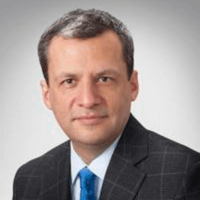Research
Pancreas and Biliary Diseases
The Pancreas & Biliary Center at the University of Pittsburgh offers world-class expertise for simple and complex diseases of the pancreas and biliary tract. We offer a Pancreatic Center of Excellence in which radiologists, surgeons and other specialists have worked together as a team over the past two decades. The Pancreas and Biliary Center is one of the busiest centers of its kind in the country and is internationally known for clinical expertise and research.
The Pancreas & Biliary Center excels through multi-disciplinary teamwork. Clinical expertise is combined with new molecular diagnostic tools and abdominal imaging capabilities to direct the patient to appropriate use of therapeutic ERCP, endoscopic ultrasound (EUS) and all surgical procedures. Areas of special expertise include early detection and diagnosis of pancreaticobiliary malignancies as well as genetic testing and counseling for patients and families at risk for pancreatitis or pancreatic cancer. Research protocols center on prevention, detection and novel treatments for recurrent acute and chronic pancreatitis, pancreatic cysts, pancreatic cancer and promising neoadjuvant therapies.
Cutting edge translational research is central to the Pancreas & Biliary Center. For the last dozen years, University of Pittsburgh physicians and scientists have been building a unified team aimed at understanding human pancreatic and biliary diseases at the most basic levels and utilizing new knowledge to improve clinical practice. Major advances include the discovery of the genetic basis for hereditary pancreatitis (the mutated trypsin gene, PRSS1 R122H) as well as the genetic causes of “idiopathic” recurrent acute and chronic pancreatitis lead by Dr. David Whitcomb. Other primary advancements include new methods for early detection of pancreaticobiliary malignancies in strictures, masses and cysts lead by Dr. Asif Khalid, advanced GI procedure technology through Dr. Adam Slivka and Dr. Kevin McGrath, as well as findings in pancreas epidemiology by Dr. Dhiraj Yadav, all of which have updated treatment paradigms.
The Pancreas & Biliary Center directs the international PancreasFest program each summer. Pancreatologists and scientists meet to discuss pancreatic research in a multi-disciplinary and multi-institutional setting to enhance the understanding of pancreatic diseases and to improve patient care.
The University of Pittsburgh’s clinical protocols, translational programs and basic research studies are leading to new methods for the early detection and enhanced treatment of pancreatic cancer, pancreatitis and related pancreaticobiliary diseases.
Investigators
Dr. Albers' Research
Dr. Brand's Research
Dr. Brand is a physician-scientist with an extensive background in pancreatic diseases who focuses mainly on the early diagnosis of pancreatic cancer and cystic lesions of the pancreas. He also has research interests involving familial pancreatic cancer and other hereditary GI disorders. He is leader of the University of Pittsburgh’s Pancreatic Adenocarcinoma Gene-Environment Registry (PAGER). This biospecimen repository, which was developed as part of the PAGER study, is nationally recognized and serves as an excellent resource for multiple NIH/NCI funded projects along with national and international collaborations with outside researchers. Dr. Brand is a key contributor to the Early Detection Research Network, especially in research related to pancreatic cancer and cystic neoplasms. He is currently funded in the network as a principal investigator to lead both a multi-center Pancreatic Cancer Clinical Validation Center and Biomarker Developmental Laboratory.
Dr. Chennat's Research
Dr. Chennat’s research investigates such conditions as Barrett’s esophagus neoplasia, endotherapies for pancreatitis, novel imaging techniques such as confocal endomicroscopy, and endoscopic devices and product designs related to guided visualization and targeted tissue ablation.
Dr. Das' Research
Dr. Davis's Research
Dr. Fasanella's Research
Dr. Khalid's Research
Dr. McGrath's Research
Dr. Phillips' Research
Dr. Phillips’s research interest primarily focuses on pain in chronic pancreatitis, but also includes problems related to acute pancreatitis such as pain, nutrition, and diabetes.
Dr. Saloman's Research
The Saloman Lab uses both in vitro and in vivo animal models as well as clinical samples to conduct anatomical, behavioral, optogenetic, Ca2+ Imaging, and cell/molecular studies to investigate the role of the nervous system in regulating homeostasis as well as pathological conditions, including visceral pain and tumorigenesis. Currently, we are investigating the contributions of nociceptive versus neuropathic pain mechanisms to chronic pancreatitis pain. Cancer neuroscience is an emerging field, and we are focused on how neuro-immune interactions regulate tumorigenesis.
Click image to enlarge.
Dr. Sarkaria's Research
Dr. Sarkaria’s research focuses on screening, early detection, and endoscopic therapies for gastrointestinal cancers, including pancreas, bile ducts, gallbladder, esophagus, stomach, and colon, as well as benign pancreaticobiliary diseases and pancreatic cysts.
Dr. Slivka's Research
Dr. Slivka’s research interests include non-invasive diagnosis of pancreaticobiliary cancer, development and testing of new drugs and devices used during ERCP, and the development of new strategies to treat pancreatitis and pancreatic cancer.
Dr. Whitcomb's Research
Dr. Whitcomb’s research program involves a pancreatic disease focus for modeling complex, multistep gene-environment interactive disorders requiring a precision medicine approach. His multicenter, genotype-phenotyping hereditary pancreatitis study and North American Pancreatitis Study II (NAPS2) programs, plus acute pancreatitis and pancreatic cancer studies using reverse engineering and predictive modeling approaches serve as a foundation and pathway for diseases in multiple organ systems. He leads the Genomic Resource to Enhance Available Therapy (GREAT) study to initiate the delivery of precision medicine for complex chronic disorders and their complications. Dr Whitcomb also studies the pathophysiology of severe acute pancreatitis and pain genetics.
Dr. Yadav's Research
Dr. Yadav studies the epidemiology of pancreatic diseases. He has used local, state and national level data as well as collaborative studies to define various aspects of the epidemiology of pancreatitis. His major contributions to the scientific literature include the role of alcohol and tobacco; incidence, prevalence and hospitalizations; risk and burden of readmissions; and the natural history of pancreatitis. Data generated from his studies are often used by national agencies, such as the National Institutes of Health, to set research priorities. Dr. Yadav is a member of the NIDDK-funded NAPS consortium, which has prospectively ascertained the largest prospective cohort of patients with recurrent acute and chronic pancreatitis in the United States to conduct collaborative studies. He is the Contact-PI for the NIDDK/NCI-funded Pittsburgh Clinical Center, which is part of the Consortium to study Chronic Pancreatitis, Diabetes and Pancreatic Cancer (CPDPC). He co-chairs the adult chronic pancreatitis working group for CPDPC, and serves as the Co-PI of the longitudinal cohort study of chronic pancreatitis (The PROCEED Study). Dr. Yadav is also the Co-PI of an NIDDK-funded UO1 consortium conducting a multicenter randomized clinical of minor papilla sphincterotomy in patients with acute recurrent pancreatitis with pancreas divisum (The SHARP Trial).
Contact Us

Division of Gastroenterology,
Hepatology and Nutrition
Mezzanine Level, C-Wing, PUH
200 Lothrop Street
Pittsburgh, PA 15213
412-864-7091 | Email


















